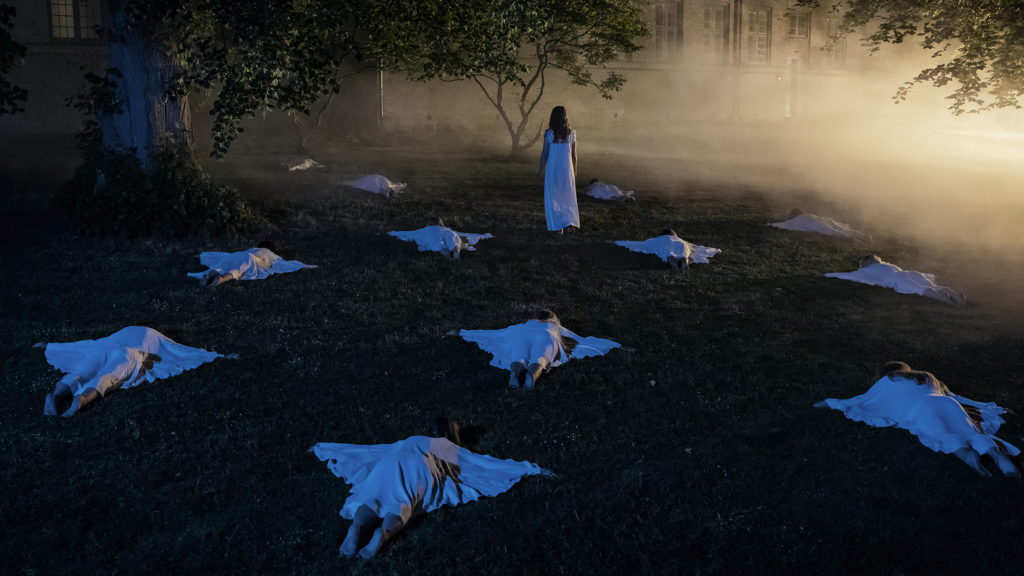Marie Grahtø graduated from the independent film school Super16 in 2014. She has travelled to festivals around the world with her short films “Daimi” (2012) and “Yolo” (2013), and her graduation work, “Teenland” (2014). She is a two-time Danish Academy Robert Award nominee and has been named a Director to Watch by the four largest Nordic film magazines. “Psychosia” is her feature directorial debut.
“Psychosia” will premiere at the 2019 Venice Film Festival on September 4.
W&H: Describe the film for us in your own words.
MG: It’s an insight into the deep, dark, and magical corners of the human psyche.
W&H: What drew you to this story?
MG: My personal experience with psychosis and hospitalization during my youth.
W&H: What do you want people to think about when they are leaving the theater?
MG: I hope that the audience will appreciate our efforts in trying to create a cinematic experience about the difficult subject of a human being’s struggle with the psychological forces of the unconscious.
W&H: What was the biggest challenge in making the film?
MG: The biggest challenge was to practice humility and at the same time to be uncompromising in approaching the difficult subject of mental illness.
W&H: How did you get your film funded? Share some insights into how you got the film made.
MG: We are financed by Danish Film Institute’s New Danish Screen program. We co-produced with Bufo in Finland and the Finnish Film Foundation. We were selected for CineMart in Rotterdam, Nordic Genre Boost in Norway, Torino Film Lab, and Festival de Cannes’ L’Atelier, where we developed and presented the film to markets.
We also received funding from Creative Europe.
W&H: What inspired you to become a filmmaker?
MG: I grew up in Zimbabwe in the late ’80s and there was no television for children during those years, so I watched Woody Allen films from the time I was a little kid. But it was as a student of film theory that I decided to become a filmmaker. I felt that the academic, theoretical, and analytical approach was somewhat one-dimensional.
It was kind of a coincidence that I ended up making films for a living. Initially, I just wanted to try it out to learn more. Little did I know that it would become the greatest love affair of my life.
W&H: What’s the best and worst advice you’ve received?
MG: I don’t believe in good or bad advice. It is how one goes about the advice that is important.
W&H: What advice do you have for other female directors?
MG: The same advice I would give to any other director no matter what gender they identify as: Work hard.
W&H: Name your favorite woman-directed film and why.
MG: Lynne Ramsay’s “Morvern Callar.” This film is a poetic portrait of a character’s uncompromising struggle to make the most out of a traumatic experience, all morals aside. I like that.
W&H: What differences have you noticed in the industry since the #MeToo and #TimesUp movements launched?
MG: I have seen many positive effects and an increased willingness to include and listen to women and [those identifying as] other genders’ experiences. I have also talked to some men that are now feeling the powerlessness and frustration that comes with being gendered and not being allowed to simply be. The world is now explicitly gendering men as well.
Not many people appreciate being boxed into categories, so I hope that this difficult discourse will enable us to arrive in a space and time where we don’t initially gender-categorize each other.
Ultimately, I feel that such categories are a very narrow way of addressing what it is to be a human being.







